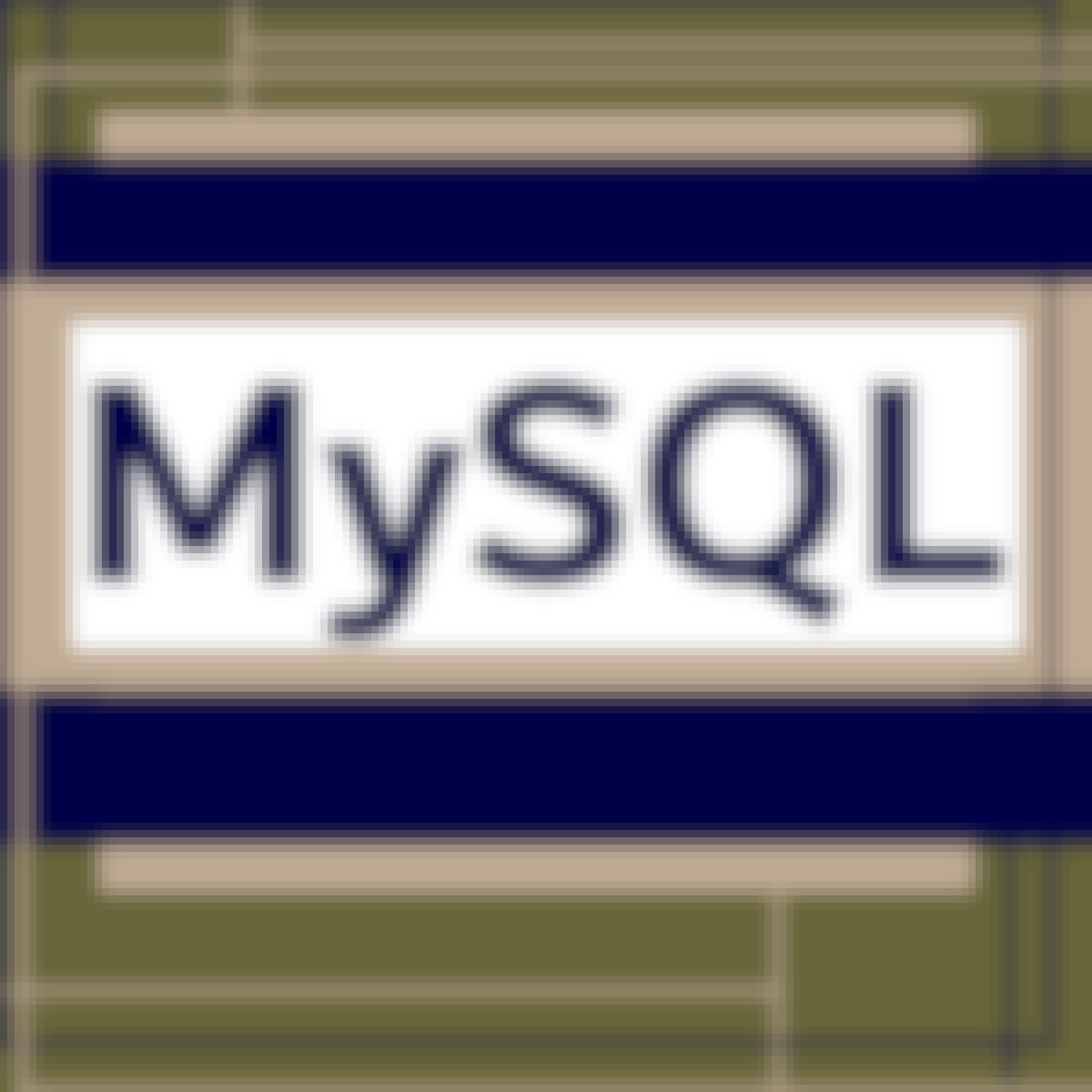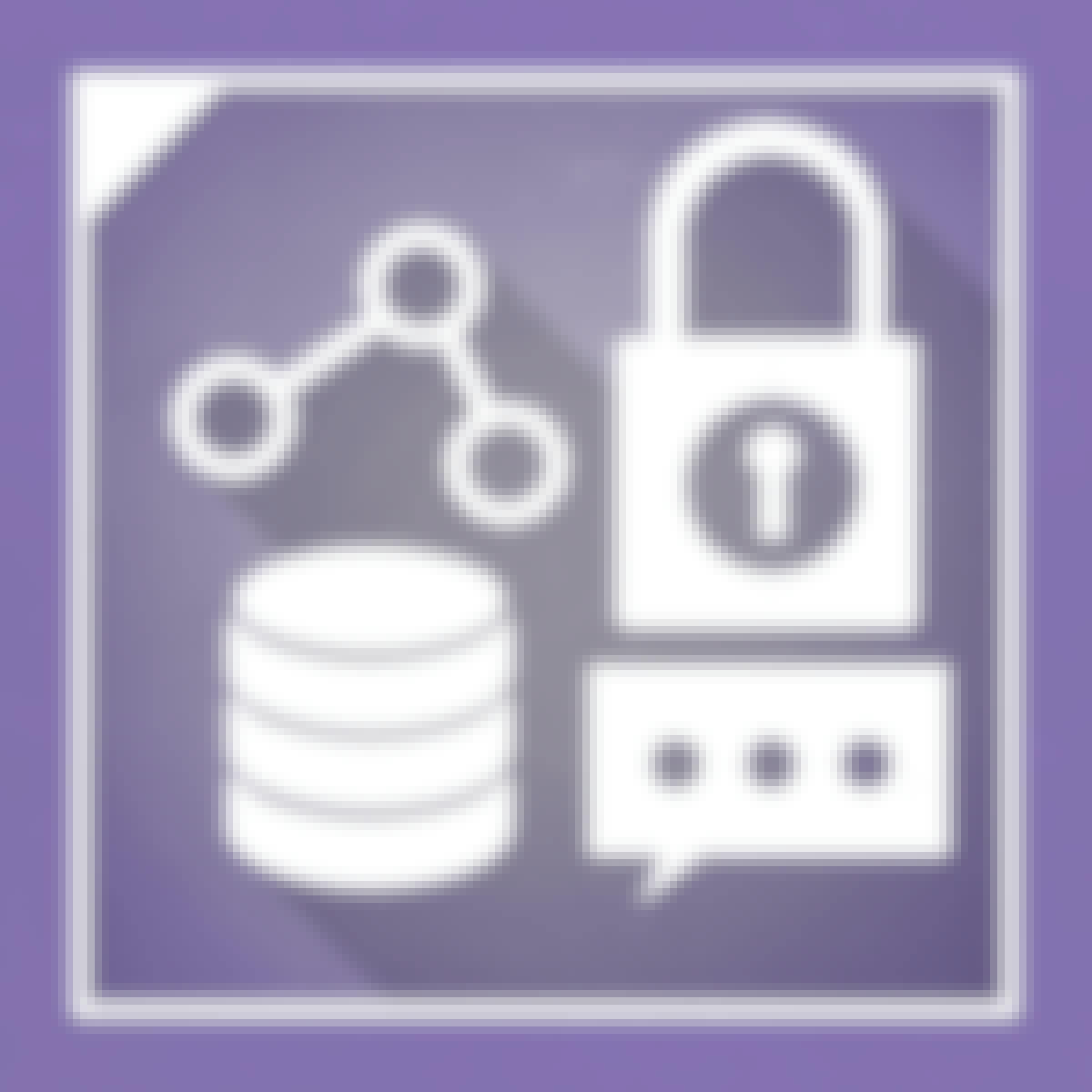- Browse
- Management Information Systems
Management Information Systems Courses Online
Explore management information systems for business efficiency. Learn about information systems, data management, and IT strategy.
Explore the Management Information Systems Course Catalog
 Status: Free TrialFree TrialH
Status: Free TrialFree TrialHHoward University
Skills you'll gain: Design Thinking, Business Software, Information Systems, Cloud Computing, Business Systems, Cloud Solutions, Business Technologies, Cloud Computing Architecture, Cloud Security, Virtualization, Digital Transformation, Cloud Services, Management Information Systems, Product Design, Business Solutions, Information Technology, Cloud Infrastructure, User Centered Design, Cybersecurity, Data Management
4.8·Rating, 4.8 out of 5 stars69 reviewsIntermediate · Specialization · 1 - 3 Months
 Status: NewNewStatus: Free TrialFree Trial
Status: NewNewStatus: Free TrialFree TrialSkills you'll gain: Strategic Decision-Making, Corporate Strategy, Business Strategies, Business Strategy, Business Ethics, Organizational Strategy, Strategic Leadership, Business Planning, Growth Strategies, Environmental Social And Corporate Governance (ESG), Strategic Prioritization, Strategic Planning, Strategic Thinking, Management Information Systems, Stakeholder Management, Business Administration, Plan Execution, Operational Efficiency, Business, Business Process Reengineering
Beginner · Specialization · 3 - 6 Months
 Status: NewNewStatus: PreviewPreviewU
Status: NewNewStatus: PreviewPreviewUUniversidade de São Paulo
Skills you'll gain: Business Process Modeling, Business Modeling, Data Modeling, Business Process, Knowledge Transfer, Business Requirements, Information Systems, Concept Of Operations, Information Management, User Requirements Documents, Management Information Systems, Organizational Strategy, Technical Documentation, System Requirements, Requirements Analysis, Functional Specification, Resource Management
Intermediate · Course · 1 - 3 Months
 Status: Free TrialFree TrialH
Status: Free TrialFree TrialHHoward University
Skills you'll gain: Business Software, Information Systems, Business Systems, Business Technologies, Management Information Systems, Information Technology, Enterprise Resource Planning, E-Commerce, Systems Analysis, Computer Hardware, Data Warehousing, Disaster Recovery, Networking Hardware, Business Ethics, Operating Systems, Business Process Management, Customer Relationship Management, Security Management, Business-To-Consumer, Data Security
4.8·Rating, 4.8 out of 5 stars55 reviewsIntermediate · Course · 1 - 4 Weeks
 Status: NewNewStatus: Free TrialFree Trial
Status: NewNewStatus: Free TrialFree TrialSkills you'll gain: Organizational Strategy, Business Strategy, Strategic Planning, Strategic Thinking, Management Information Systems, Strategic Leadership, Plan Execution, Strategic Decision-Making, Corporate Strategy, Sales Enablement, Sales Strategy, Performance Measurement, Revenue Management, Business Priorities, Competitive Analysis, Talent Acquisition, Key Performance Indicators (KPIs), Team Motivation
Mixed · Course · 1 - 4 Weeks

Skills you'll gain: ServiceNow, Service Level, Systems Administration, User Accounts, Authorization (Computing), Database Application, System Configuration, Automation, Application Design, Content Management, Scripting, Management Information Systems
4.4·Rating, 4.4 out of 5 stars23 reviewsBeginner · Course · 1 - 3 Months
What brings you to Coursera today?
 Status: Free TrialFree TrialU
Status: Free TrialFree TrialUUniversity of Illinois Urbana-Champaign
Skills you'll gain: Business Analytics, Analytics, Data Analysis, Business Intelligence, Business Valuation, Analytical Skills, Data Quality, Asset Management, Information Management, Business Analysis, Feasibility Studies, Business Modeling, Data-Driven Decision-Making, Trend Analysis, Advanced Analytics, Predictive Analytics, Data Strategy, Data Literacy, Management Information Systems, Data Warehousing
Build toward a degree
4.6·Rating, 4.6 out of 5 stars410 reviewsBeginner · Specialization · 3 - 6 Months
 C
CCoursera
Skills you'll gain: MySQL Workbench, MySQL, Database Management, Databases, Database Management Systems, Relational Databases, Management Information Systems, SQL
4.4·Rating, 4.4 out of 5 stars30 reviewsBeginner · Guided Project · Less Than 2 Hours
 Status: Free TrialFree TrialU
Status: Free TrialFree TrialUUniversity of Illinois Urbana-Champaign
Skills you'll gain: Business Valuation, Data Quality, Asset Management, Information Management, Management Information Systems, Information Privacy, Information Architecture, Data Governance, Intellectual Property, Organizational Structure, Enterprise Architecture, Informatics, Business Metrics, Law, Regulation, and Compliance, Innovation, Data Analysis, Accounting, Big Data
Build toward a degree
4.5·Rating, 4.5 out of 5 stars33 reviewsBeginner · Course · 1 - 3 Months
 Status: PreviewPreviewU
Status: PreviewPreviewUUniversitat Autònoma de Barcelona
Skills you'll gain: Collaborative Software, Content Creation, Digital Communications, Information Management, Content Management, Web Content, Management Information Systems, Web Applications, Personally Identifiable Information, Databases, Computer Literacy, Database Systems, Digital Transformation, Information Privacy
Beginner · Course · 1 - 4 Weeks
 Status: PreviewPreviewF
Status: PreviewPreviewFFundação Instituto de Administração
Skills you'll gain: Crisis Management, Decision Making, Brand Management, Branding, Marketing Communications, Corporate Communications, Brand Strategy, Public Relations, Communication, Communication Strategies, Management Information Systems, Auditing
4.8·Rating, 4.8 out of 5 stars90 reviewsIntermediate · Course · 1 - 3 Months
Management Information Systems learners also search
In summary, here are 10 of our most popular management information systems courses
- Introduction to Information Systems for Business: Howard University
- Strategic Management: Business Strategy & Cases: EDUCBA
- Modelagem de empresas para sistemas de informação (4EM): Universidade de São Paulo
- Foundations of Information Systems for Business: Howard University
- Strategic Management with Real-World Case Study: EDUCBA
- ServiceNow System Administrator from Zero to Hero: Packt
- Introduction to Business Analytics and Information Economics: University of Illinois Urbana-Champaign
- MySQL with Information Technology: Coursera
- Infonomics II: Business Information Management and Measurement: University of Illinois Urbana-Champaign
- Competencias digitales para el mundo académico y laboral: Universitat Autònoma de Barcelona
Frequently Asked Questions about Management Information Systems
Start by identifying your focus—whether it’s systems analysis, IT management, data-driven decision-making, or preparing for a role in business technology.
- For a foundational overview, try Introduction to Information Systems for Business from Howard University.
- Interested in business data and system thinking? Explore Digital Transformation by the University of Virginia.
- Want to build data analysis skills relevant to MIS? Consider Data-Driven Decision Making by PwC.
These beginner-friendly courses help you understand how organizations use systems to manage operations and make decisions:
- Information Systems Auditing, Controls and Assurance – Covers the role of MIS in business functions, decision-making, and operations.
- Information Systems Specialization – Offers courses on IT fundamentals, ERP systems, and digital strategy.
- Foundations of Information Systems for Business – A great starting point for students or professionals new to the field.
- A course focuses on a key MIS area—such as enterprise systems, databases, or IT strategy, such as Information Systems Auditing, Controls and Assurance.
- A Specialization includes multiple courses for structured, layered learning—like the Information Systems Specialization.
- A Professional Certificate may not focus solely on MIS, but related programs—like Google Data Analytics Certificate or IBM IT Support Certificate—offer complementary skills in data, tech, and systems management.
Management information systems (MIS) refers to the practices and processes centered on the relationships between organizations, technology, and people. In business, a management information system is all the tools that executives and employees use in data research, business support processes, competitive intelligence, and information technology. Put simply, MIS tools help companies manage and move data and information. It's a closely related business discipline to both enterprise resource planning and information technology management.
MIS is used to analyze how people gather, study, and use the data accumulated in work processes, such as data-driven reports to help companies make timely decisions on strategy. Management information systems help companies use data to decide on a strategic direction. For instance, retail companies can see customer purchases in use databases to know which of its clothing products sell better than others. Technology companies use management information systems to plan, develop, manage, and track actions made by its user base.
Learning management information systems can give you a broad background in how technology processes impact companies and how people working in these companies can make better use of the data and technology every day. Not only will you learn how to design and develop technology practices for business operations, but you'll also gain clarity on the overall scope of technology in a company structure. Your understanding of management information systems can help you achieve greater potential in future technology and management careers.
Some of the typical careers that use management information systems include common IT-related roles like systems developer, business application developer, network administrator, information systems manager, systems analyst, and similar roles. In these jobs, your effectiveness as an MIS leader will likely be judged by your communication skills, your 'big vision' thought processes, and your ability to manage your time well, allocate projects effectively to team members, and take responsibility for projects both successful and less than successful. You might work primarily with software projects that integrate with networks and learn how to build processes around them.










